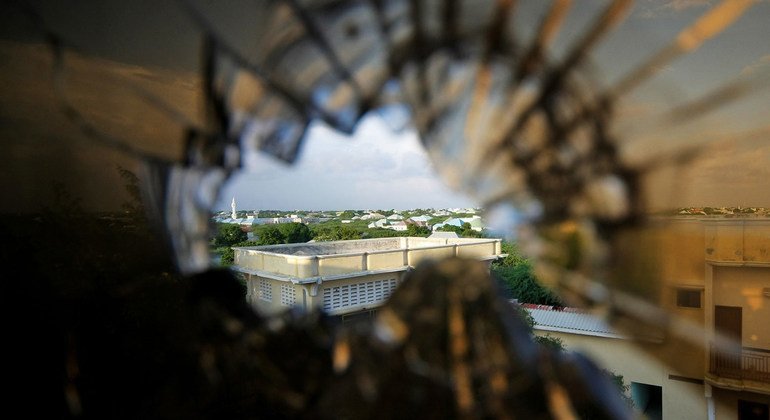UN counter-terrorism chief highlights Da’esh rise, calls for global action


Vladimir Voronkov, head of the United Nations Office on Counter-Terrorism (UNOCT), also highlighted the danger posed by ISIL-Khorasan, Da’esh’s affiliate in Afghanistan, leading to an increased threat level in Europe.
These include the group’s attack on Crocus Town Hall near Moscow killed More than 140 people attended the concert and injured more than 500. ISIL-K also stepped up propaganda that “could inspire” actors to attack “soft” targets, raising concerns at high-profile sporting events, according to a United Nations Report.
“The group is considered the greatest external terrorist threat to the continent.Mr. Voronkov said.
He stressed that terrorism continues to be a significant challenge for the international community, a problem that no country can solve on its own.
“To eliminate the terrorist threat, we need comprehensive, multilateral responses. “It is firmly built on political strategies, adheres to international law and is informed by whole-of-society and whole-of-government approaches,” he stressed.
West Africa and the Sahel
The terrorism landscape in West Africa and the Sahel remains challenging and complex, as Da’esh-affiliated groups expand their reach across the region and demonstrate resilience and adaptability despite continued counterterrorism efforts.
Mr Voronkov warned that if the Islamic State in West Africa and the Islamic State in the Sahel expand their influence in northern parts of West Africa and the Sahel, a large swath of territory stretching from northern Nigeria to Mali could come under their de facto control.
Mozambique, Democratic Republic of Congo, Somalia
Elsewhere in Africa, Da’esh affiliates have stepped up operations in northern Mozambique as well as eastern Democratic Republic of Congo.
This has led to a “significant increase” in terrorist attacks and civilian casualties.
Da’esh’s branch in Somalia also grew stronger, expanding its military and enhancing its financial infrastructure.
Afghanistan
Mr Voronkov said that two of the risks he had highlighted over the years had unfortunately come true.
These operations involved ISIL-K, Da’esh’s affiliate in Afghanistan, improving its financial and logistical capabilities and increasing recruitment efforts.
“The activities of Da’esh and other terrorist groups in Afghanistan remain a significant concern. We must unite to prevent Afghanistan from becoming a hotbed of terrorism again.“, he urged.
Syria, Iraq
The second risk concerns the resurgence of Da’esh, which has claimed responsibility for ISIL-K’s global attacks, with the aim of using them for propaganda purposes.
In early January, Da’esh launched a coordinated campaign across its self-proclaimed “provinces,” including an increase in activity in Iraq and Syria, Voronkov said.
He called for continued counter-terrorism efforts to prevent the group from capitalizing on these gains.
To that end, he stressed the need to address “deplorable conditions” in refugee camps and detention facilities in northeastern Syria, and called on member states to step up efforts to repatriate their citizens from these camps.




